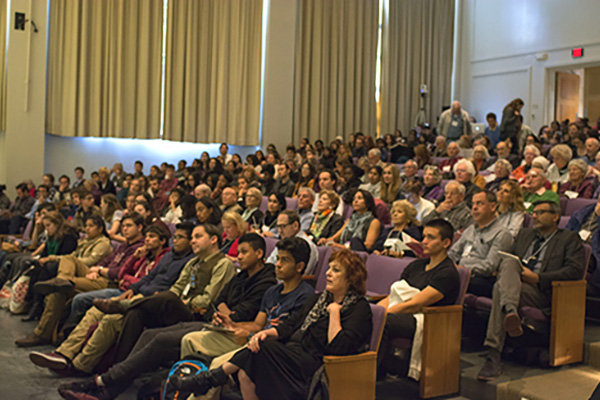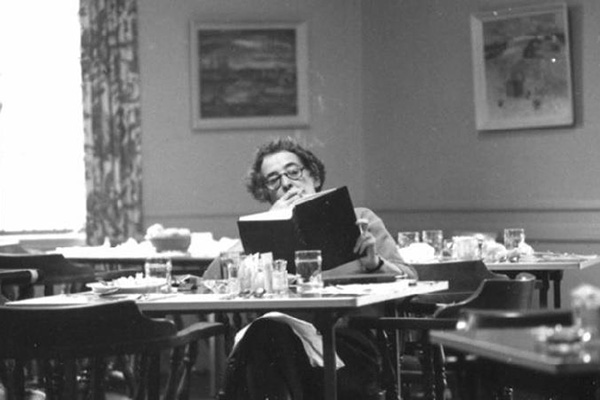Courage to Be
Dinner and Lecture Series
The program hosts guest lectures, sponsors new research, and fosters curricular innovations that ask: Why it is that some people have the spiritual courage to act conscientiously, where others abandon themselves to mass movements?
The Project includes fellowships for young scholars; lectures by internationally renowned experts; and A new series of courses titled "The Practice of Courage."
Autonomies Series
This student-led speaker series confronts the present moment as a crisis of autonomy. It highlights contemporary social movements, amplifies voices outside of the academy, and realizes spaces for action. Cries for self-determination and self-governance have never been as vocal as today. At the same time, infringements on political, legal, and bodily autonomy seem to form the persistent backdrop for a culture of curated individualism and the search for collective forms. Autonomies proposes that autonomy exists in the plural; autonomy not as individualism but as community care, as collective resistance against discrimination and marginalization. The series highlights contemporary social movements, amplifies voices outside of the academy, and realizes spaces for action.
HAC Symposium: Reimagining Human Health
Over the last century, infectious diseases faded from view as the greatest threat to human health. During the same period, chronic inflammatory and noncommunicable diseases like asthma, Alzheimer’s, lupus, arthritis, Crohn’s, IBD, celiac disease, obesity, and others have increased exponentially; noncommunicable diseases now account for over 60 percent of all deaths. New research also points to these environmental factors’ impact on the human microbiome. The Hannah Arendt Center at Bard College, along with the Bard Farm, Bard EATS, and the Bard Center for Environmental Sciences and Humanities, sponsored an interdisciplinary symposium to ask how it is we can teach and work to address the crisis posed by the threat to the human microbiome.
Tough Talks Lecture Series
A premise of Arendtian thinking is an embrace of plurality. Plurality is the condition of speech and action by which we appear to others as ourselves in the world. Plurality is the fact that people live in their own way, worship different gods, pursue different ideals, and associate with different people. Amidst such plurality, political life is where we come together in common, embracing what unites us amidst our differences. Plurality is thus a condition of politics, since politics is a discussion amongst a plurality of individuals with different opinions, not a search for a single truth. To do away with plurality would be to do away with the public realm of politics altogether.



